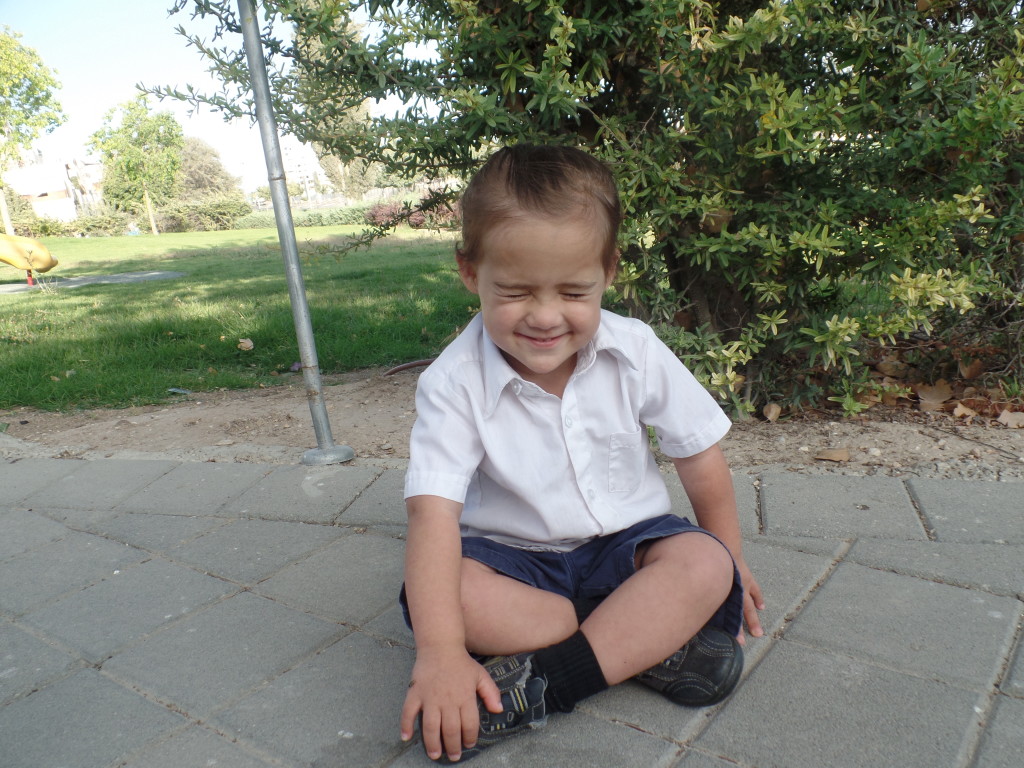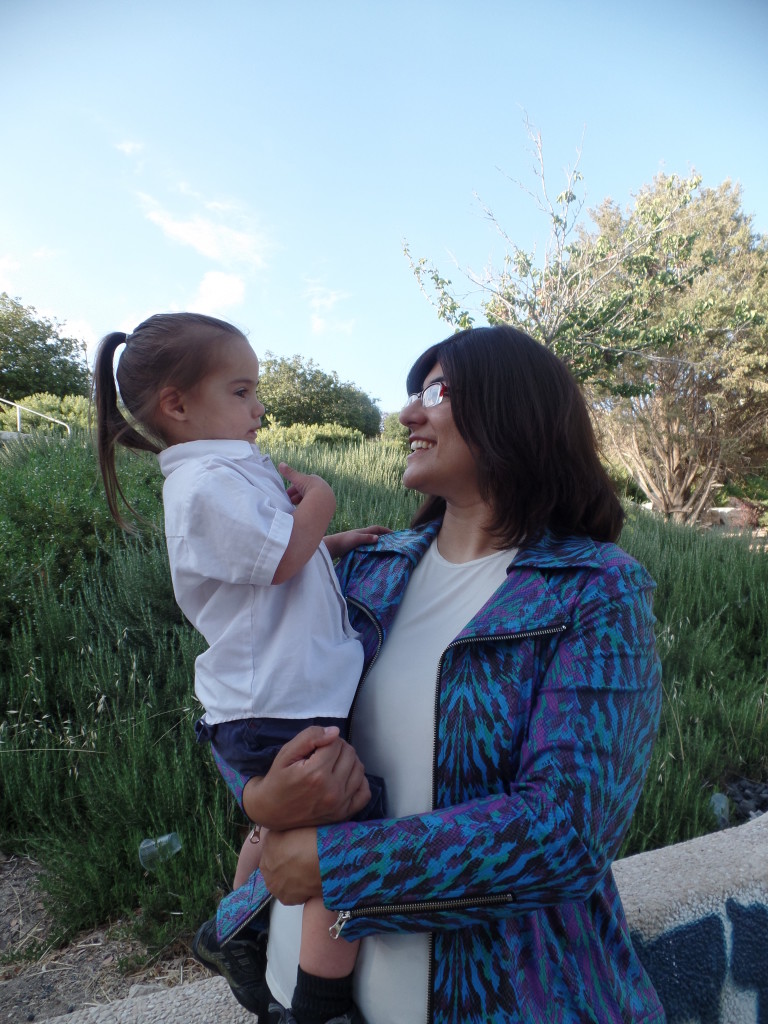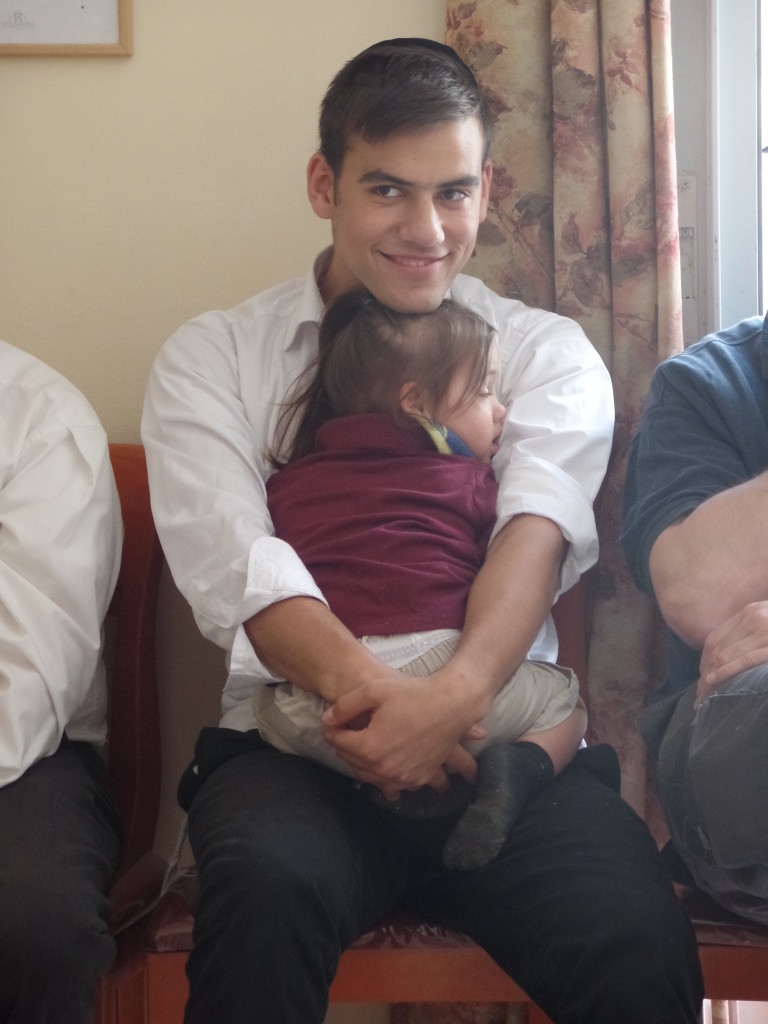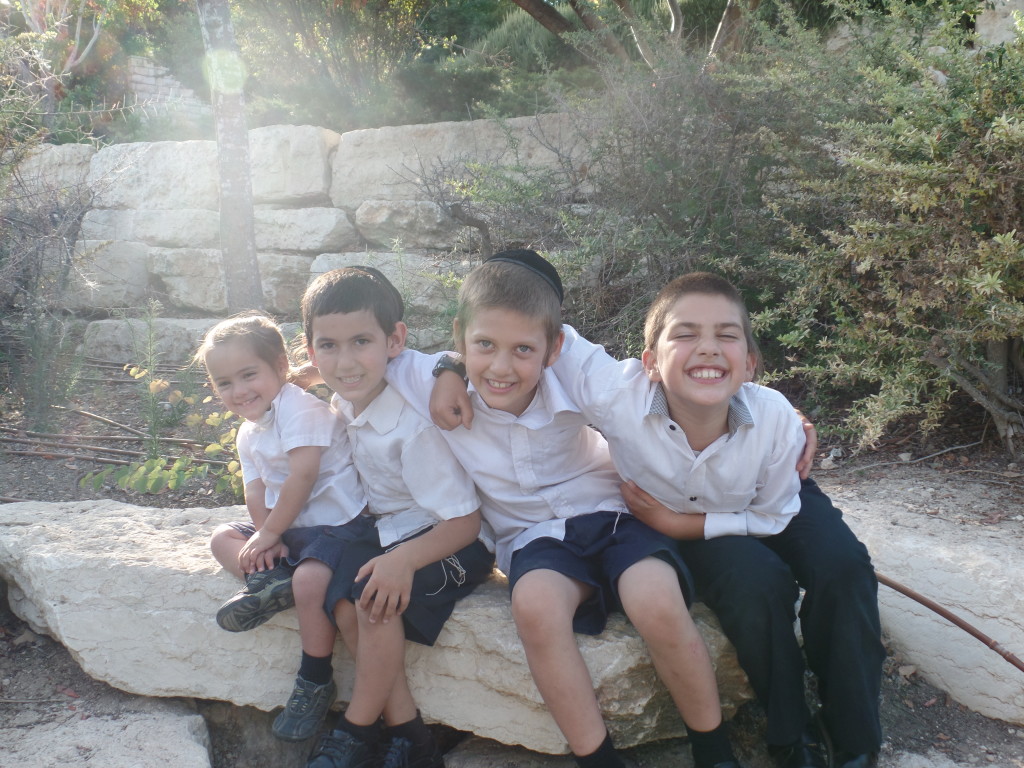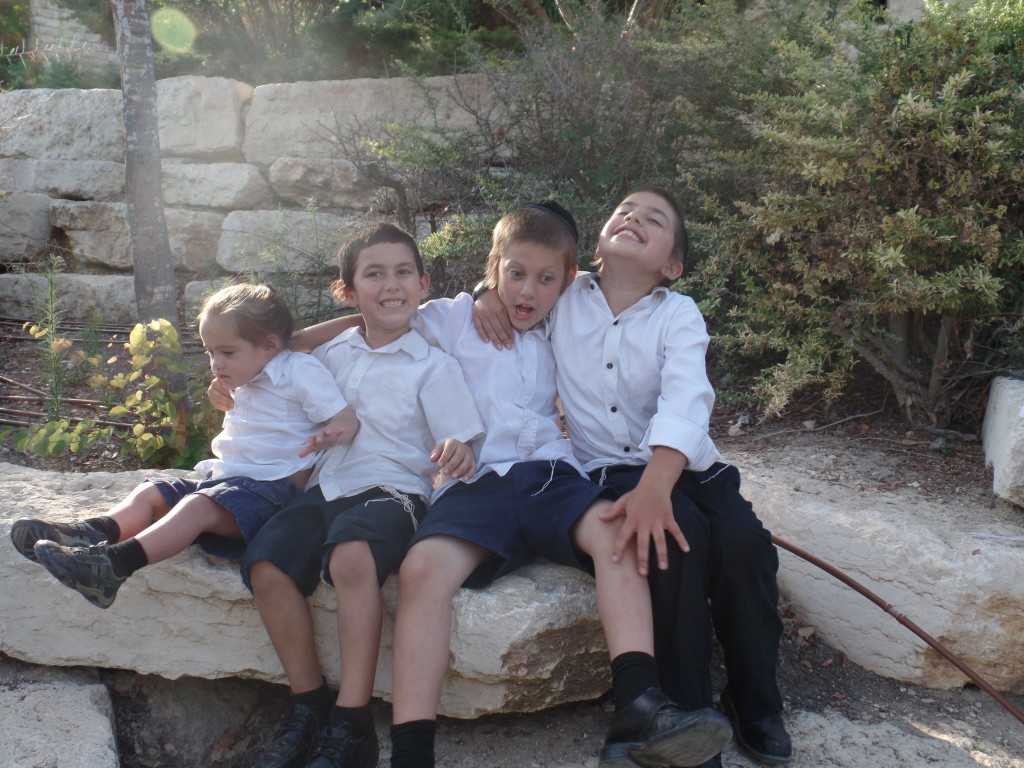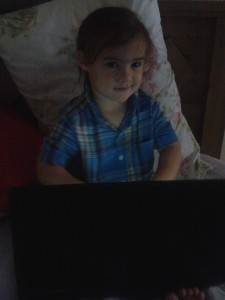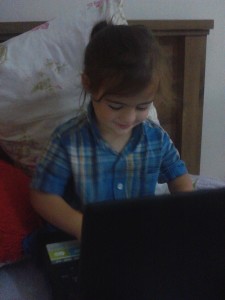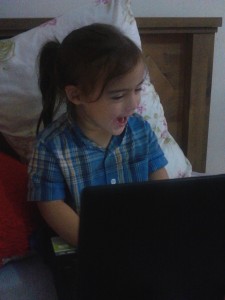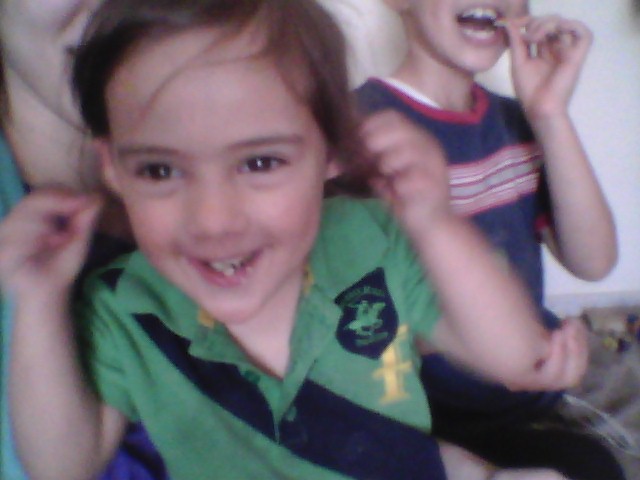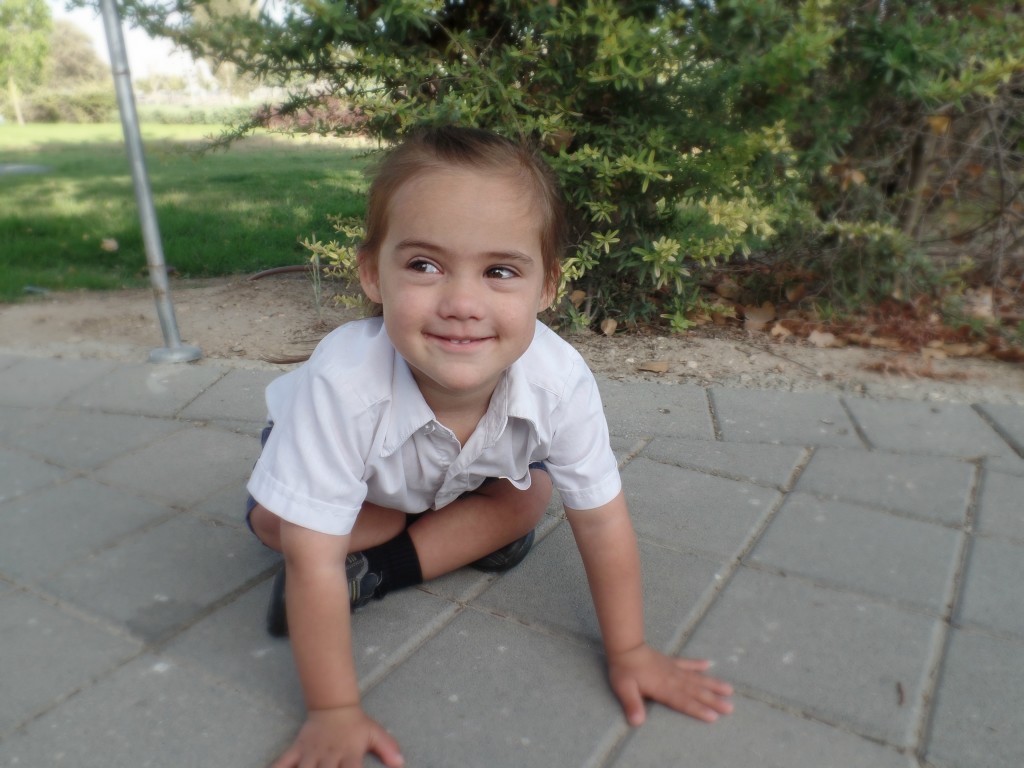Since I like to try things out before recommending it to you, this post has been a looong time in coming!
My three year old has a speech processing delay called apraxia. Apraxia in simple terms  means that although the child knows what he wants to say and understands everything, the message gets scrambled somewhere in transmission between the brain and mouth.
means that although the child knows what he wants to say and understands everything, the message gets scrambled somewhere in transmission between the brain and mouth.
This means that a child with apraxia has to work much, much harder to speak and it takes much longer. I suspected ds3 had apraxia when he was 18 months, but the speech therapist told me he didn’t. At his 2 year old speech assessment, I received a letter in the mail a few weeks after our in-person meeting and discussion (when nothing was mentioned to me) and it was only then that I saw he had been officially diagnosed with apraxia.
Based on what I had learned about apraxia I knew that weekly speech therapy was likely be inadequate to help ds3 learn to speak well. So when two or three months later in December 2104 later I learned about Gemiini, I was cautiously hopeful.
Gemiini is a video modeling program designed to help children with autism that was getting breakthrough results. What was exciting to me was that someone on a Down syndrome group shared that she had started using it a month before with her child with T21 who didn’t have autism and was seeing significant improvements.
I took a month to look into it before signing up, and began using Gemiini with Yirmiyahu in Jan. 2015. We’ve been using it since then on a regular basis. I’ve been meaning to write about it for quite some time, but now that I just re-registered for a new subscription figured I shouldn’t keep you in the dark any longer!
Gemiini has a huge video library of words, phrases, social situations, etc that your child can watch repeatedly. This is really important for a child with a speech delay or social delay, as it gives them the opportunity to see what the word means, how it’s used and there’s as much repetition as your child needs. It’s incredible to me how many aspects there are to this program (eg learning to read) and how many ways it can be used, in different situations and at different levels ranging from beginner to advanced, for people of all ages.
When we began Gemiini, Yirmi had almost no sounds. His sign language and ability to act out what he wants to tell us is excellent – someone in the park said a few days ago she’s never seen such a young child able to so clearly communicate without speaking – but spoken speech is obviously important. Soon after we began using Gemiini, I saw him moving his lips as he watched the videos, trying to copy the word he was watching. Since then he’s begun saying simple one syllable words and word approximations, which is very exciting.
Generally screen time should be limited or even avoided for young children, but since Gemiini is actually helping to heal the brain, it doesn’t have the negative concerns associated with screen time. I use Gemiini with Yirmi for up to an hour a day, up to six days a week.
I spoke with a blog reader a year ago and mentioned we were using this program. She told me of a friend with a child with Trisomy 21 who was nine years old and nonverbal, and asked if the mother could contact me. That person did call me and I told her about this program. Two weeks after starting Gemiini she called me back , and with emotion told me her daughter – who they assumed was unable to speak – had begun to talk.
Gemiini is a company with a huge heart and sense of mission. It began with a mother of a large family being told her three year old twins were autistic and that one was beyond help (they’re now about 19 and in college). She spent endless hours researching a way to help her own children and this video modeling approach now helps many, many children.
The program is a paid monthly subscription, with an option to try it out for a month and even have a free 20 minute consultation with one of their representatives to discuss how to use the program for best results for their child’s specific needs. They don’t want children to be denied this help because of financial constraints and finances and as such offer scholarships to make the program accessible to everyone.
In the word of speech therapy, this program is a huge advance and for me and many other parents, offers tremendous hope. It can be used in conjunction with a speech therapist or as a stand-alone program. (In case you’re wondering, I don’t receive any compensation or benefits by mentioning this.)
The website is Gemiini.org and you can get more information there!
Avivah

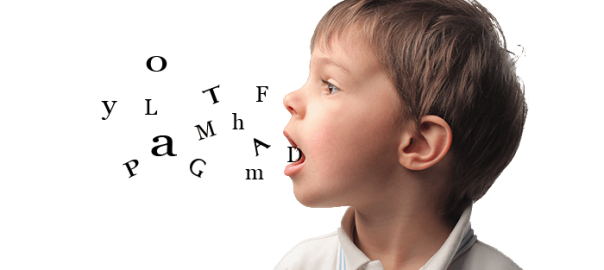

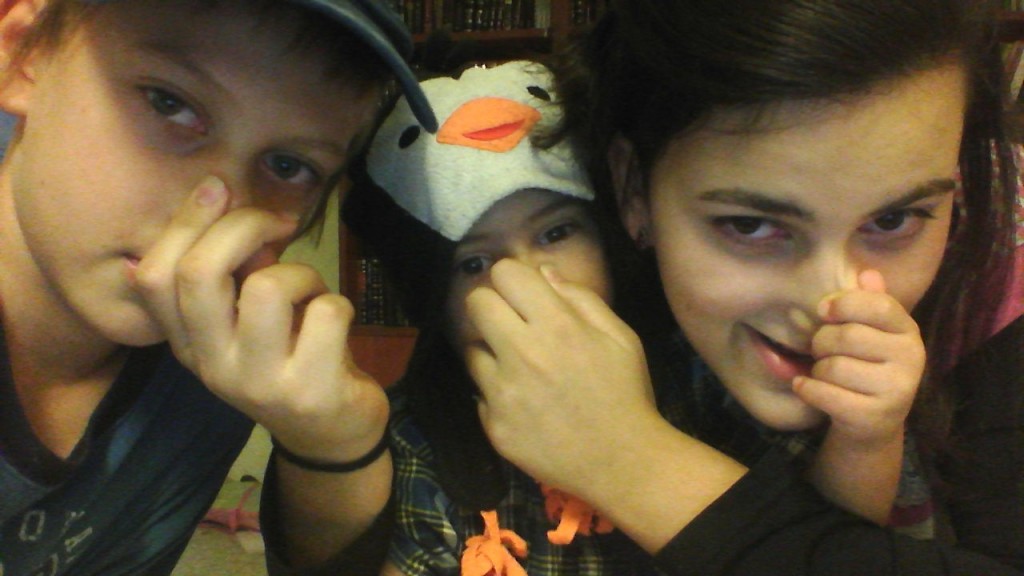
![People-First-Language-2[1]](http://avivahwerner.com/wp-content/uploads/2015/11/People-First-Language-21.jpg)
